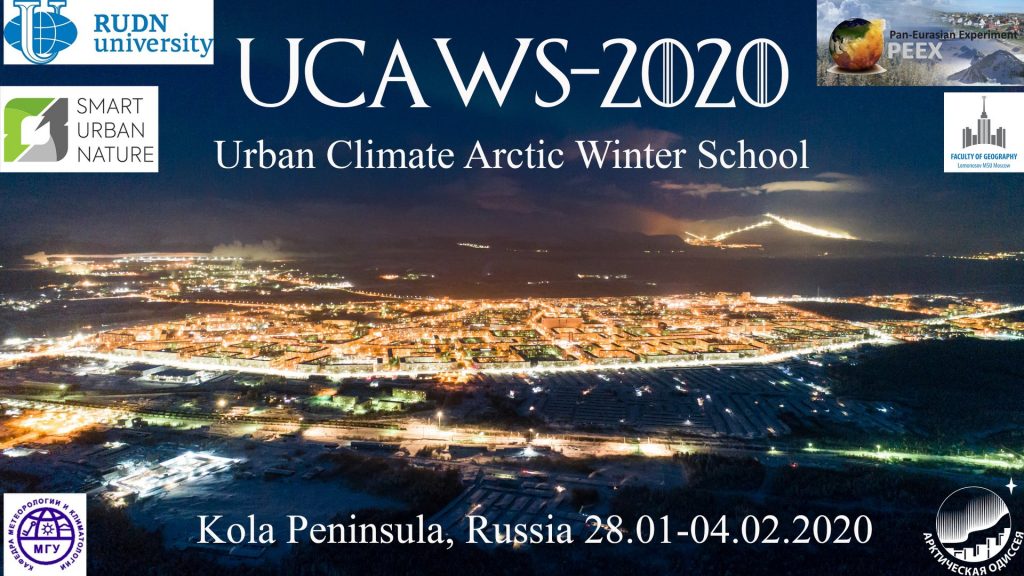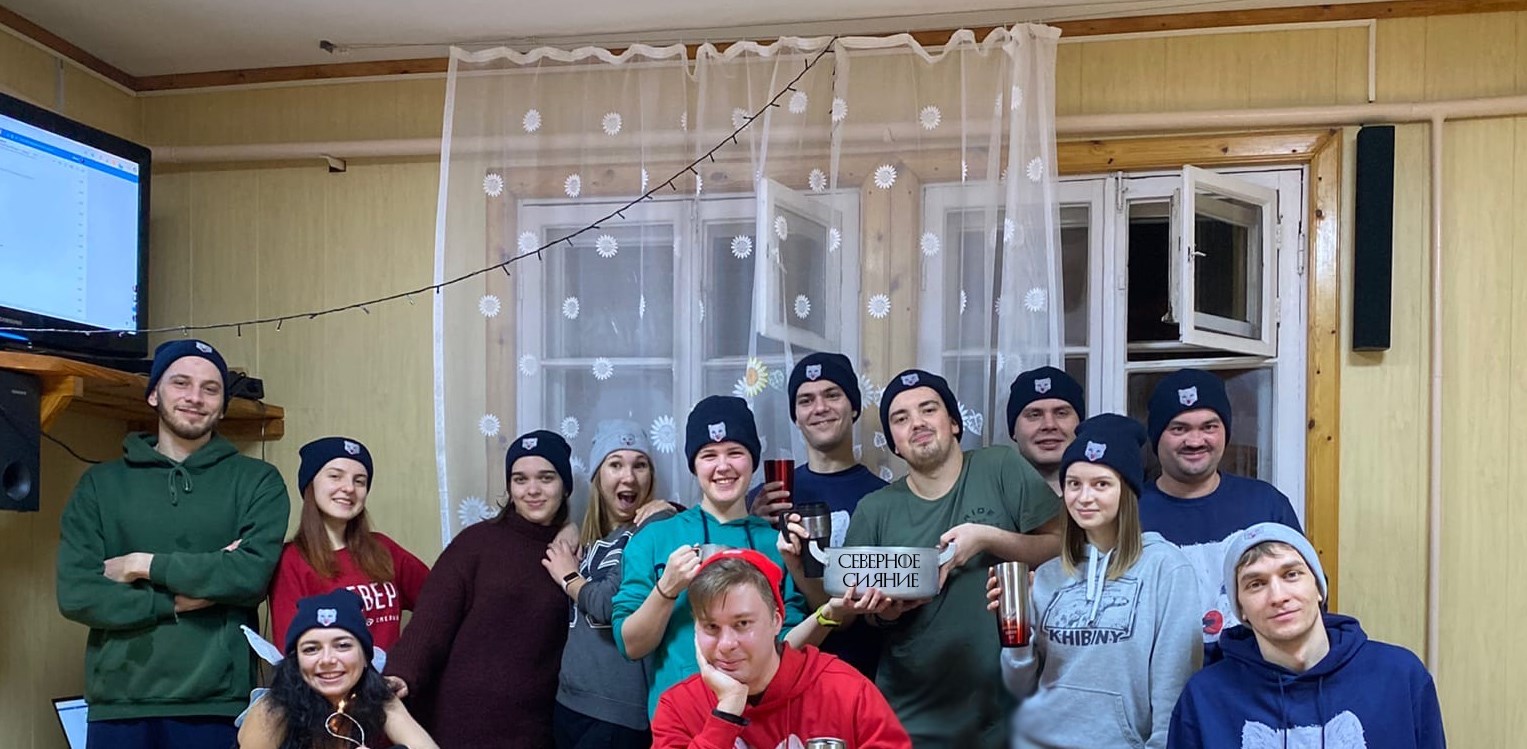From January 28 to February 4, 2020, the first in Russia Urban Climate Arctic Winter School-2020 (UCAWS-2020) was held on the Kola Peninsula in the far northwest of Russia which lies almost completely inside the Arctic Circle. The school concerns the problems of urban climatology in high latitudes. The event was organized with the assistance of the PEEX program, the Laboratory of Smart Technologies for Sustainable City Development (RUDN University) and the Council of Young Scientists of the Faculty of Geography (Moscow State University). The winter school gathered undergraduates and graduate students of RUDN University and Moscow State University who are specializing in the field of urban meteorology.
 This year, as an experiment, it was decided to focus not only on field work methods at -30 degrees outside, but directly in working with regional and microclimatic meteorological models (WRF_ARW, ENVI-MET etc).
This year, as an experiment, it was decided to focus not only on field work methods at -30 degrees outside, but directly in working with regional and microclimatic meteorological models (WRF_ARW, ENVI-MET etc).
It was noted that huge potential of young researchers often remains unrealized because of a lack of technical skills (visualization of scientific data, regional modeling, working with model outputs). That is why during UCAWS-2020, each of the participants received a personal task corresponding to his scientific interests or research topic, the implementation of which he devoted the bulk of the school’s program. Students and other participants could also visit some lectures and seminars – Data processing in Matlab, Introduction to LINUX and GIS Analysis, Regional WRF model and applications, Fundamentals of working with the ENVI-MET package, Using CDO to process climate data and also have open discussions.
One of the winter school’s experts the scientific reseacher of SUNLab Pavel Konstantinov highlighted that it was quite important to provide all of the students with their personal tasks matched with their scientific field to develop technical skills and ability to apply professional equipment in field conditions.
Students and experts spent intensive and exciting week which was too short to complete all scientific tasks. It means that Urban Climate Arctic Winter School might take place again in 2021.


